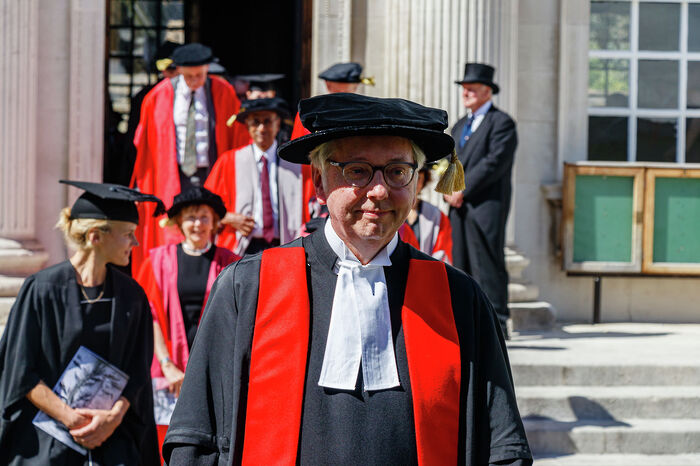Varsity explains: What is the UCU ballot? Could there be more strikes?
Acting president of Cambridge UCU says staff are “fired up by the deepening inequality” in their deteriorating work conditions

On September 9th, two industrial action ballots opened to members of the University and College Union (UCU). The first ballot demands higher pay and more equality for those who work in higher and further education, and the second rejects an increase in pension contributions.
UCU encourages members, who have until voting closes on the 30th of October, to vote in support of Industrial Action and also Action Short of a Strike in both ballots.
According to UCU, over the past ten years, university staff have seen their pay diminish each year. This year staff are facing yet another below-inflation pay offer, effectively a pay cut, while at the same time being expected to increase the amount they contribute towards their pensions. The combination of these factors amounts to a fall of almost 4% in real terms wages.
“As living in Cambridge becomes more and more expensive, we just can’t afford another decrease in pay,” Jennifer Marchant, acting president of Cambridge UCU, said, noting that the wage reduction would exacerbate inequalities already seen in higher education, including the gender pay gap and other disparities for BME and disabled staff.
Should Cambridge UCU members vote in favour of industrial action, academic and research staff, as well as post-doctoral and postgraduate students, may strike, beginning any time between mid-November and the end of April 2020. This could have an impact on lectures, departmental supervisions, and administrative work including marking, similar to the strikes in 2018.
However, in order for this action to go ahead, 50% of all eligible UCU members must vote, and from those who vote, 50% must vote yes in order for the strikes to go ahead.
This voter turnout is far from guaranteed nationally, as it comes on the heels of a failed vote to strike for pay last February. While 69.8% of UCU members in England, Scotland and Wales voted in support of strike action and 80.5% backed action short of a strike, the voter turnout of 41% nationwide failed to meet the 50% turnout threshold needed to take action.
Marchant noted that this time, however, the result may be different in Cambridge as UCU are running “disaggregated ballots, which means that if locally we reach the 50% threshold we can strike,” she said. “People can see their working conditions deteriorate, and they’re fired up by the deepening inequality that creates.”
She added that although the Union failed to pass the threshold in February’s votes on a national level, the 50% threshold was met in Cambridge.
A closer look at the ballots
The first ballot is protesting unfair wages. According to the UCU website, since 2009 the wages of university staff have fallen by over 20% in real terms. At the same time, their workloads have increased to “unprecedented levels”, resulting in staff performing “an average of two days’ unpaid work every week.” The ballot is insisting that pay keeps up with the cost of living, and also protests the increasing number of “precarious” fixed term contracts.
Protesting pay disparities, the Cambridge branch of UCU notes that the ballot is especially important for the institution it represents, due to the fact that, whilst the gender pay gap across the higher education sector as a whole is 12%, it stands at 19.6% in Cambridge.
The second ballot protests increased pensions contributions, which are set to rise to 9.6% in October. UCU described this plan as amounting to “another pay cut.”
Employers did offer to only increase the contribution rate to 9.1% rather than 9.6% for two years, but the union declined, saying, “The [UCU’s higher education committee] decided that while [the offer] was a step in the right direction it did not go far enough.”
“As well as being too little, it would only have applied up to October 2021. After that our contributions would go up to 11%, as originally scheduled.”
Calling on students to support the UCU’s demands on pay and pension contributions, the National Union of Students (NUS) and the UCU issued a joint statement on September 30th.
“We believe that the failure to address ever higher salaries for vice-chancellors and principals, while attacking pensions, sends a hugely damaging message to both students and staff,” it reads.
Marchant acknowledged that strikes can be difficult but emphasized the necessity of industrial action in this case.
“Nobody wants to go on strike, and nobody takes industrial action lightly: it’s hard on staff, and hard on students; but it’s difficult to see how else we can bring universities back to the negotiating table.” She added that, in the past, strikes have forced employers to consider the union’s demands.
“As a result [of February’s failed vote], universities have felt free to ignore our demands. Compare that to last year, when – after university staff staged an unprecedented round of industrial action – employers suddenly looked seriously at the data that UCU had been presenting on the health of the pension scheme and found that the Union’s view was sound.”
 News / Clare Hall spent over £500k opposing busway 24 December 2025
News / Clare Hall spent over £500k opposing busway 24 December 2025 Comment / The ‘class’ of Cambridge24 December 2025
Comment / The ‘class’ of Cambridge24 December 2025 News / Eight Cambridge researchers awarded €17m in ERC research grants27 December 2025
News / Eight Cambridge researchers awarded €17m in ERC research grants27 December 2025 News / Caius mourns its tree-mendous loss23 December 2025
News / Caius mourns its tree-mendous loss23 December 2025 Comment / League tables do more harm than good26 December 2025
Comment / League tables do more harm than good26 December 2025









